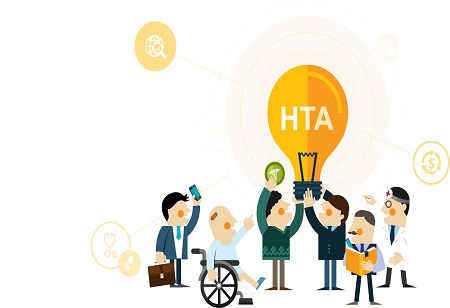Vishal Pratap Singh | Saturday, 09 April 2022

It is always seen that new interventions and technologies are constantly being developed and refined in healthcare sector across the countries.
Health Technology Assessment (HTA) is a systematic and multidisciplinary evaluation of the properties of health technologies and interventions covering both their direct and indirect consequences. “HTA always comes into picture whenever a new healthcare technology is made available in a healthcare setup and a decision has to be made between the new technology and the already existing technology”, says Amit Dang, Founder and CEO, Marksman Healthcare Solutions. The global health technology assessment market is projected to reach USD 821.1 billion by 2026 from USD 326.1 billion in 2021, at a CAGR of 20.3 per cent during the forecast period.
Bridges Gap between Research and Policy Making
Experts believe that HTA can act as a transparent and accountable process that can be used by decision makers and other stakeholders to support the decision making process in healthcare at the policy level by providing evidence about given technologies. It has been regarded as a bridge that connects the world of research to that of policy making.
Provides Cost Effective and Efficient Policies
The Health Technology Assessment provides data or information for the decision makers to develop and implement policies that are safer, cost effective and efficient to use in the clinical settings. HTAs can target specific projects, such as kidney dialysis or be as comprehensive as a system wide assessment for a multitude of clinical areas. Oftentimes, healthcare systems focus the study on a few areas. Health Technology Assessment is an active field internationally and has seen continued growth fostered by the need to support management, clinical and policy decisions. It has also been advanced by the evolution of evaluative methods in the social and applied sciences, including clinical epidemiology and health economics. Health policy decisions are becoming increasingly important as the opportunity costs from making wrong decisions continue to grow.
Provides Transparent Assessment Processes
HTA methods are evolving and their applications are increasingly diverse. Broader participation of people with multiple disciplines and different roles in healthcare is enriching the field. The heightened demand for HTA, in particular from the for-profit and not-for-profit private sectors as well as from government agencies, is pushing the field to evolve more systematic and transparent assessment processes and reporting to diverse users.
The body of knowledge about HTA cannot be found in one place and is not static. Practitioners and users of HTA should not only monitor changes in the field but have considerable opportunities to contribute to its development.
Reduces Out of Pocket Expenditure
Health Technology Assessment appraises health interventions and technologies based on available data on resource use, cost, clinical effectiveness and safety. It collects and analyse evidence in a systematic and reproducible way and ensure its accessibility and usefulness to inform health policy. Dissemination of research findings and resulting policy decisions to educate and empower the public to make better informed decisions for health will be done. It also aims to maximise health in the population, reduce out of pocket expenditure and inequity, to support the process of decision making in health care at the central and state policy level.
HTA provides reliable information based on scientific evidence and develop systems and mechanisms to assess new and existing health technologies by a transparent and inclusive processes. Health Technology Assessment encourages the process and finalise the development of standardized cost effective interventions that will reduce the cost and variations in patient care, expenditure on medical equipment in directly affecting the cost of patient care, overall cost of medical treatment and streamline the medical reimbursement procedures.
Ensures Cost Effective New Technologies
HTA can be used to define which benefits to include while carrying out evidence based assessments. New technologies are usually costlier than older ones and contribute to rising health expenditures. In this context, the HTA process ensures that a new technology is not added until it is proven to be effective. Meanwhile, an older technology is not removed from the health package until it is shown to be ineffective or not cost effective. Health Technology Assessment is also concerned with quality and the role of new technologies to improve health outcomes.
The Indian government cannot financially support every new health technology that comes onto the market, so it aims to direct government funding in the form of subsidies, to health technologies that are clinically relevant, cost effective and safe. Outcomes research and HTA are widely used to prioritize interventions that represent the most effective use of resources among many competing options in the country.
Future Expectations
In a transitional economy such as India, where chronic and non-communicable diseases represent a major public health challenge, choices related to the allocation of healthcare resources are difficult. Industry experts predict that Health Technology Assessment will offer an equitable and transparent framework within which these challenging decisions can be made. This initiative will address the disparity in the quality of primary and secondary care between urban and rural settings.